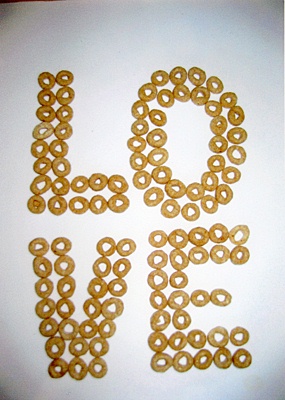All Nonfiction
- Bullying
- Books
- Academic
- Author Interviews
- Celebrity interviews
- College Articles
- College Essays
- Educator of the Year
- Heroes
- Interviews
- Memoir
- Personal Experience
- Sports
- Travel & Culture
All Opinions
- Bullying
- Current Events / Politics
- Discrimination
- Drugs / Alcohol / Smoking
- Entertainment / Celebrities
- Environment
- Love / Relationships
- Movies / Music / TV
- Pop Culture / Trends
- School / College
- Social Issues / Civics
- Spirituality / Religion
- Sports / Hobbies
All Hot Topics
- Bullying
- Community Service
- Environment
- Health
- Letters to the Editor
- Pride & Prejudice
- What Matters
- Back
Summer Guide
- Program Links
- Program Reviews
- Back
College Guide
- College Links
- College Reviews
- College Essays
- College Articles
- Back
Feedback on Cultural Theft by Alana Maisel
Feedback on Cultural Theft by Alana Maisel
Cultural Theft, by Alana Maisel, is an article about common stereotypes of different cultures and how the public gains them. The article suggests that purchasing clothes that are falsely linked to a native culture is extremely disrespectful. In her article she says that these garments “are examples of the gross oversimplification of indigenous cultures.” By making this statement, she enters the question of putting into focus the blurry line that is being disrespectful towards minority groups of people.
The author makes a very good point about racial stereotyping. Discriminating people because of something that makes them unique- such as their religion or nationality- is one of the worst things that one human being can do to another. Bigotry on a global scale has led to some of the worst massacres of all time. The list of them goes on and on- from the Native Americans being forced out of their homes and often killed or sold into slavery during American colonial times to the bloodbath that was the death of six million Jews during the Holocaust. These examples of genocide and others have been the lowest moments in human history. Avoiding things like this ever happening again is an extremely important issue, and should be never repeated again. It is of vital importance that people learn to accept each other for who they are, and not be taken for what the common and often incorrect perception is of their core traits.
However, it is important that humans be able to express themselves freely in a way that is not restricted and limited. One of the greatest things about our country is that its foundation, the Constitution, creates a nation suited for exactly that- freedom to be ourselves. In fact, the First Amendment to the Constitution gives people the freedom to do the things that wars have been fought over for hundreds if not thousands of years- the freedom of speech and the freedom of religion. The most amazing thing about living in this place is the ability to share your ideas and do it without the judgement of others on your character. As I sit here writing on my bunk bed in a beautiful room that I share with my brother, I realize how lucky I am to be able to circulate my thoughts throughout the people around me. Wars are still fought today, and mainly over religion. Thousands of people are slaughtered each week about things that we don’t have to worry about, because we live in a country that provides that option for us. It is imperative that we keep that freedom and use it to its fullest extent.
This article brings up an interesting question- at what point do we cross the line from being free to express ourselves however we chose to being unkind towards a certain group of people? Some people believe that all labeling to try and mimic the traditions of another culture, specifically indigenous peoples, is racist and wrong. In her article, Ms. Maisel says that “Using these labels for marketing is disrespectful and furthers the stereotype that native peoples are one monolithic culture, when in reality there were over 550 distinct tribes.” She makes a good point. Many things that people use to represent other cultures are harsh and simply untrue. For example, the Washington Redskins football helmet depicts an Indian as a red-faced, savage human being. That is one thing that is definitely unacceptable, because it plays on common stereotypes of Native Americans that are completely and utterly different from reality. The other extreme however, is that anything is admissible because we, according to the Constitution, have the freedom of speech. This also has some problems associated with it. Because people think that they have free reign, they rampantly offend others without taking responsibility for their actions.
Like most controversial issues, there isn’t one extreme that is correct. Either way you go, there are upsides and downsides, pros and cons. Instead what we strive for is a balance- a way to equally measure it so that we can have the benefits of both ideas without many of the downsides of either. This is easier said than done, however, as there is often a gray area around where conflicts like this are resolved. Even as we come closer and closer together, there will still be some who say that it leans too far one way and some who say that is leans too far in the other. I think not only with this specific case, but with all stereotyping in general, people need to above anything else trust themselves in how they can be politically correct and also a caring citizen. People have to think a bit more before they act- and not only about how what they are doing will benefit themselves, but how it will ultimately influence the lives of others.

Similar Articles
JOIN THE DISCUSSION
This article has 1 comment.
